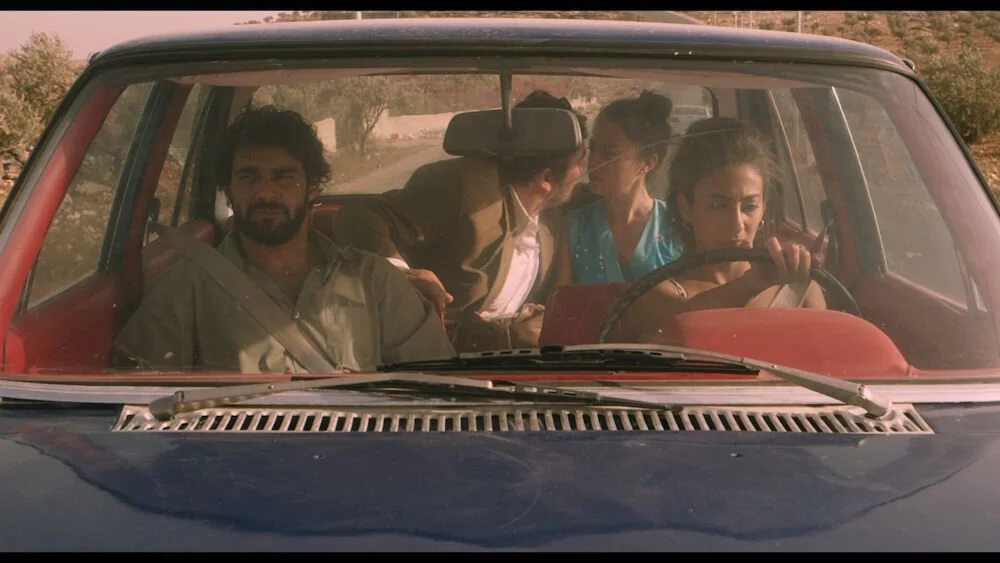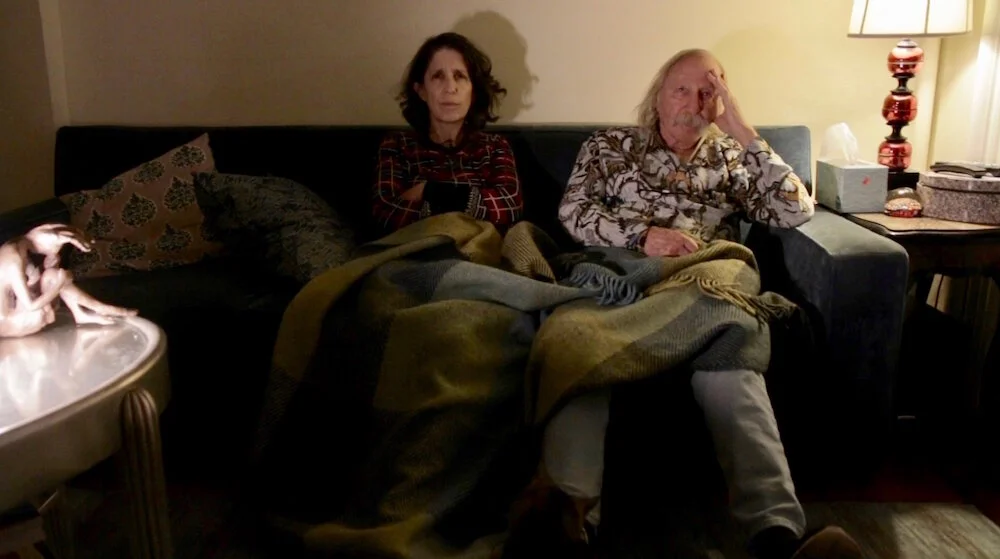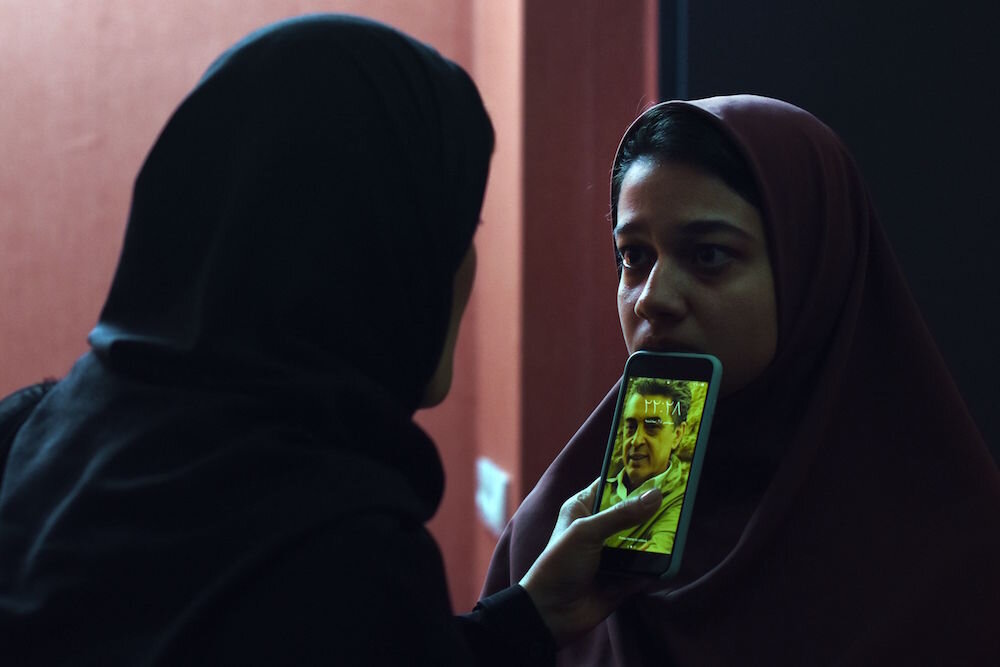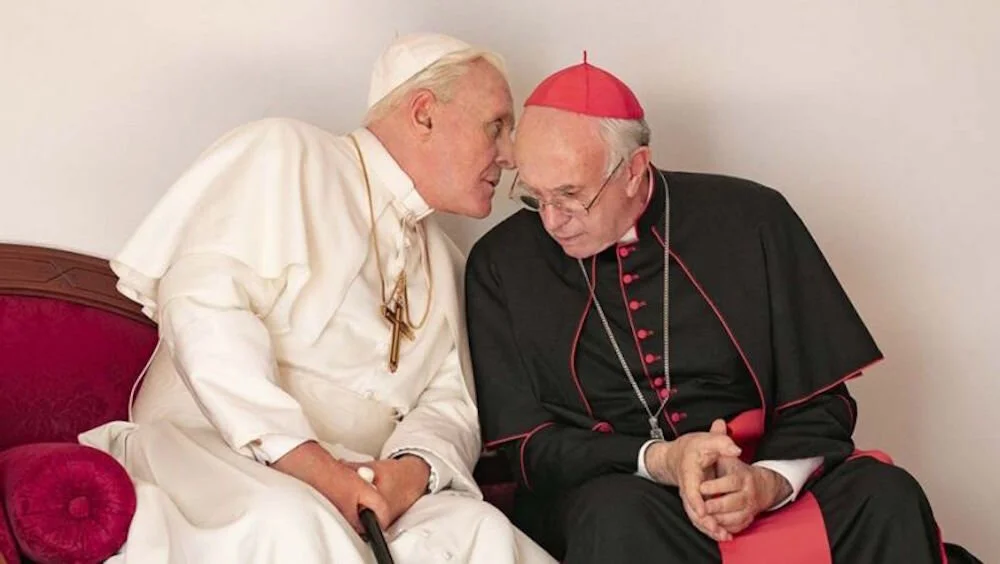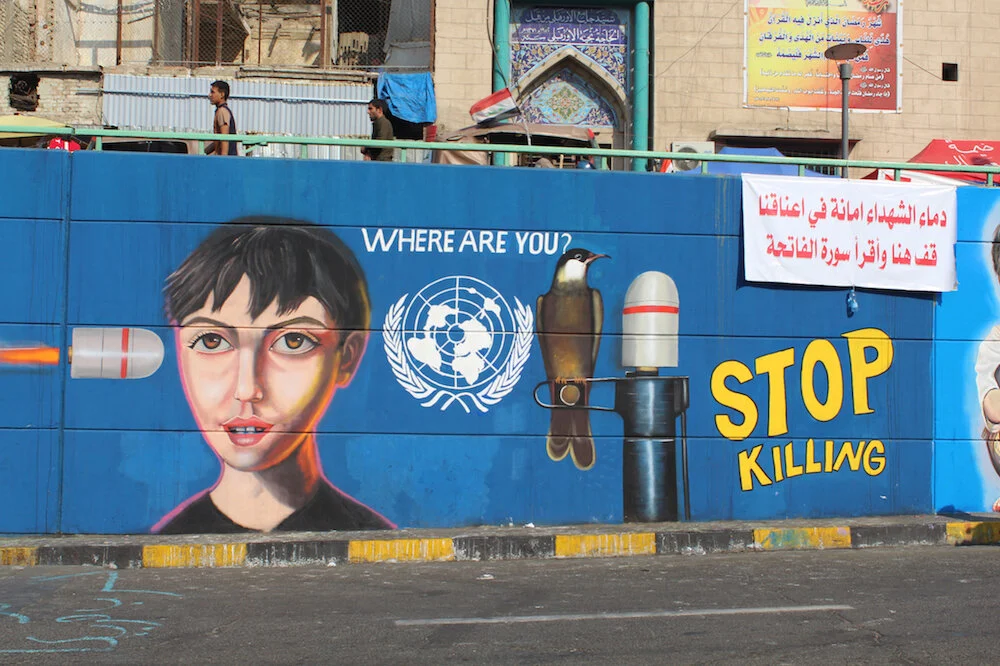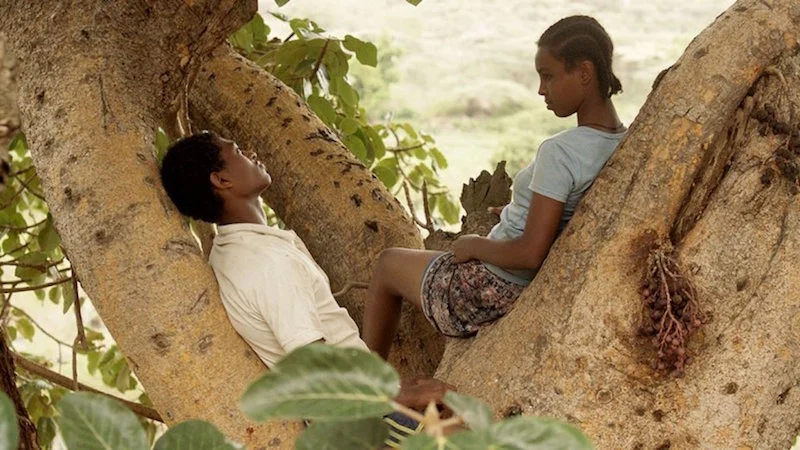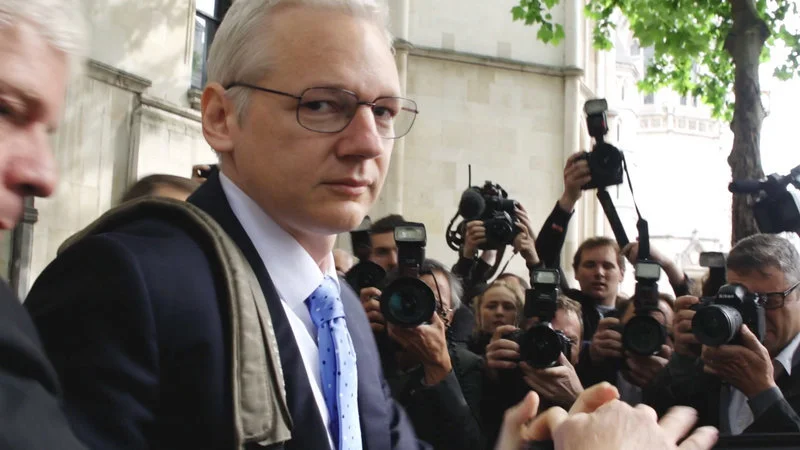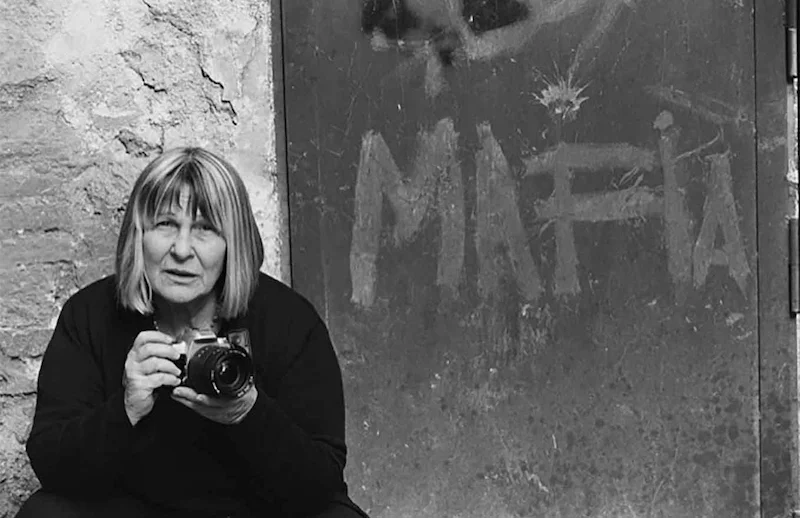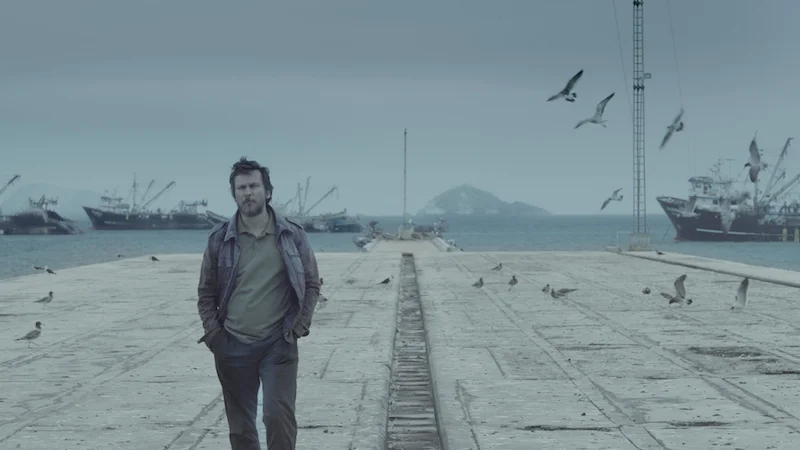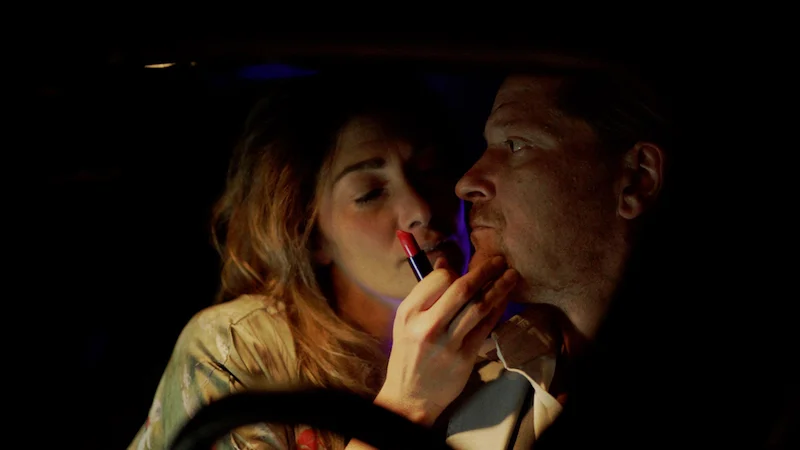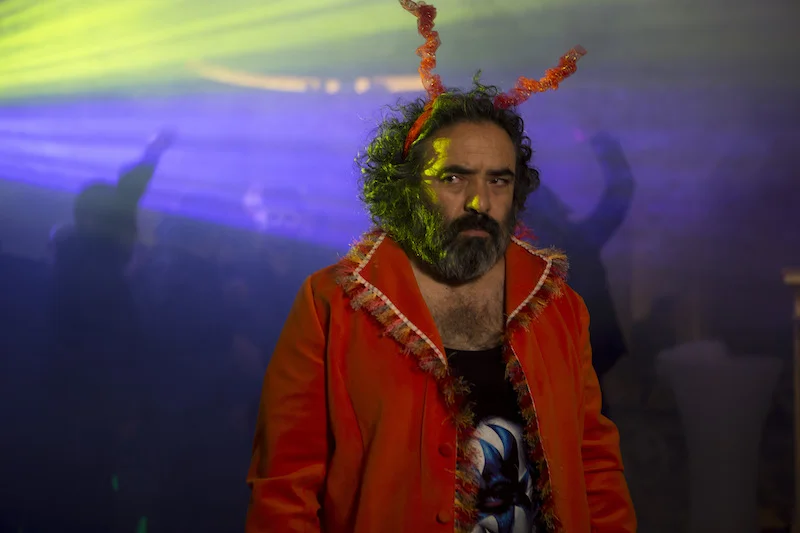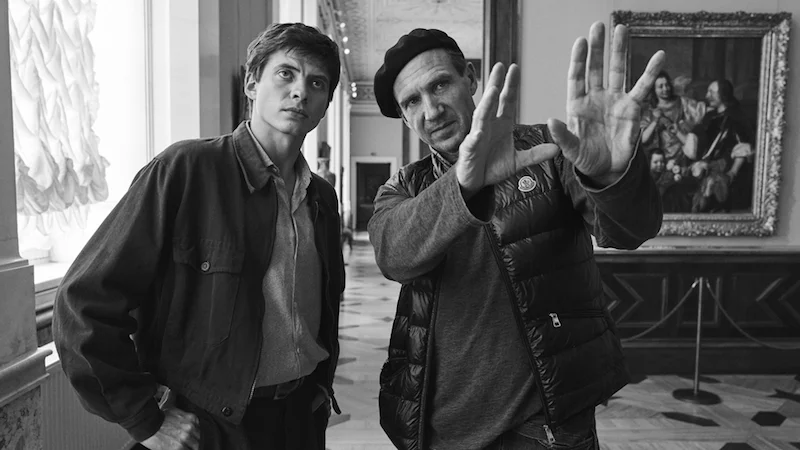One of my favorite films in Berlin this year is not in Competition. Actually it’s not even in any of the sidebars. You’ll find Najwa Najjar’s stunning, heartwarming latest feature at the Berlinale’s European Film Market, with a screening on the 22nd of February, at 9.30 in the Simon Bolivar Saal.
Read More"This is not a portrait": Lynne Sachs' must watch 'Film About a Father Who' screens in NYC
To me, Lynne Sachs’ ‘Film About a Father Who’ is simply a masterpiece. And quite clearly, Sachs is someone whose own issues with her father have turned her into a phenomenal woman — full of creativity and courage.
Read MoreSadaf Asgari as Maryam in a still from ‘Yalda, a Night for Forgiveness’
Massoud Bakhshi on his Sundance award-winning 'Yalda, a Night for Forgiveness'
There are so many threads, themes and ideas bursting through Massoud Bakhshi’s stunning ‘Yalda, a Night for Forgiveness’ that it would take a book and not a short article to discuss them all. But within the limits of this piece, I’d like to start off by saying that the film absolutely deserved to win the World Cinema Dramatic Competition Grand Jury Prize at this year’s Sundance, where it premiered.
Read More'The Two Popes' on Netflix: Sounds from a cinematic gem
I crave for a film to do something more than entertain me, when I sit down to write about it. A work of the 7th art has to change me. I need to feel like something magical clicked deep inside me to walk out of a theater, or in this case the room where I watch my TV, and sit to pen my thoughts. ‘The Two Popes’ did that. It not only showed me a different side to a story I thought I already knew — the changing of the guard between one pope and the other in 2013 — but also reinterpreted a character, former Cardinal Jorge Bergoglio now Pope Francis, in a way that changed my negative opinion of him. And I know at least one other person who felt the same way, my movie-watching partner.
Read MoreWhy aren't we talking about Iraq? And revisiting Beth Murphy's prophetic 'The List'
Back in 2012, I watched and wrote about ‘The List’ a haunting documentary by American filmmaker Beth Murphy. It premiered at Tribeca and immediately became a symbol of the country I called home at the time. President Bush Senior had fought Iraq on the fields of Kuwait, while Bush Junior invaded the country vouching to get back at Saddam Hussein for, and I quote the then President, “this is the guy who tried to kill my father.”
Ever since then, it’s been an unmentionable subject, Iraq. In US news,
Read More'The Woman Who Loves Giraffes': An intimate look at the extraordinary life of Anne Innis Dagg
Let me preface by writing that I tend to be sold right away on a film that features an exceptional woman as its central heroine. When that woman is a real life figure, still going strong and advocating both women’s rights as well as nature’s preservation, well the film immediately drives up to the top position of my favorite films. More on such a film, ‘The Woman Who Loves Giraffes’ in a minute. First bear with me and my mini trip down memory lane.
Read MoreA still from ‘People of the Wasteland’ photo courtesy of Jouzour Film Production
Heba Khaled's 'People of the Wasteland': Scenes from a place of no return
A whole lot of machine guns, a tank, a pick up truck, an empty bus. Men running, with very little dialogue. Death, casualties and destruction. And the eerie thought that even though these men fighting are the good guys, it looks an awful lot like they aren’t. Because the narrative in the West has taught us they aren’t. Whether that’s true or not, it’s up to each of us to decide. And the best way we can do that is to inform ourselves and watch as much as possible — and that includes this film I’m going to tell you about.
We have been desensitized to scenes of war, by the video games we’ve played, the images of people injured and dying on TV and violent movies. Of this I'm as sure as I am woman.
Read MoreAalam-Warqe Davidian's 'Fig Tree' in NYC: the power of cinema with a conscience
There may be a woman at the helm of Ethiopia as a country, but there is still a long road to travel for women in the Ethiopian film industry. In fact, while still plentiful considering the small number of male counterparts, —Haile Gerima is probably the best known filmmaker hailing from the country in the West — Ethiopian women filmmakers can still be only counted on the fingers of one hand. Maybe two.
Aalam-Warqe Davidian defies those odds, singlehandedly, bringing a tale inspired by her own teenage years growing up in the midst of the Ethiopian civil war. In 1989, to be more exact, is when her film ‘Fig Tree’ takes place, in a remote area of the country.
Read MoreThere's an App for that! Dana Nachman on sex in the #MeToo age in 'Hook Up 2.0' at the Tribeca Film Festival
A typical present day college party. A girl. A guy. They hook up and go the man’s pink hued apartment, yes pink you read that right, to be alone together. But this is the age of #MeToo and nothing is quite the way it used to be. I mean, and just the pink lights of the man’s apartment alone should have given that away!
‘Hook Up 2.0’ screens in the “Shorts: Funhouse” program at the Tribeca Film Festival. Check out all screening times and dates here.
Read MoreRedefining the Hero: Laura Poitras’ ‘Risk’ and the True Julian Assange
We’ve been tricked by popular cinema, comic books and TV into believing that heroes are mighty and great — lacking all fear and devoid of any fault. It’s easier to write a hero as an all-around perfect man. But in real life, heroes are those who defy their greatest fears to accomplish something which goes beyond anything they could ever have imagined. Real-life heroes don’t lack fear, rather they act in spite of this paralyzing instinct. And their faults usually outnumber their merits, just as they do with any of us, if we get down to the nitty gritty tally of it all.
In fact, I believe that oftentimes, heroes end up being heroes despite their best intentions.
Read MorePhoto courtesy of Hurdle Film, LLC
Michael Rowley's 'Hurdle': The revolution will be jumped over, tumbled under, flown above and rolled around
The Palestinian condition can be summed up in one word: Naqba — the Arabic word for “disaster”. While the Israelis celebrate their Independence Day each May, the Palestinian population mourns the loss of their land, liberty and peace on exactly the same date. It’s one of the most tragic contradictions of our times.
But the Palestinian people are nothing if not resilient. Through their ordeal they’ve made beautiful cinema, see Elia Suleiman, created mind blowing art like Nabil Anani and succeeded in sports. I could think of several examples of each. I mean, Palestinian singer Mohammed Assaf became the second ever Arab Idol in 2014 despite the fact that he wasn’t even allowed into Egypt, where the competition was filmed. While walls are built to keep them in, Palestinian figure out more and better ways to overcome those obstacles and become better, stronger and more successful.
Read MoreA Woman, armed with courage and her camera: 'Shooting the Mafia' by Kim Longinotto
Letizia Battaglia, her last name not incidentally means “battle,” has been a one-woman army fighting that decline. Through her photographs of the Mafia and the destruction it caused in her home city of Palermo — courageous because each one could have meant her death by execution, if only for having captured the soul of the unworthy, or the wrong moment in time — Battaglia has shown the world what courage, resilience and being Italian really does mean, at its highest form.
Read More'Todos Somos Marineros' at IFFR: Addressing our global displacement with Peruvian filmmaker Miguel Angel Moulet
It’s a fact that there has never been such a movement of global general uprooting, in the history of our planet. Most of us feel deep inside ourselves a sense of dissatisfaction and the easiest way to deal with it seems to be to pick up and leave -- for work, love or life experience. But that can also turn into the most difficult decision of our life, because sometimes you cannot go home again.
As an old friend used to remind me, in moments when even traveling to the other end of the planet hadn’t really fulfilled its purpose, “Nina, the problem is that when you travel, no matter where you go, you’ll always take yourself along.” It’s so true, our inner struggles transfer well, hidden within the deep recesses of our beings. And even the furthest journey sees us as our sometimes unfortunate travel companion.
Miguel Angel Moulet’s haunting, sultry and perfectly shot film ‘Todos Somos Marineros’ (‘We Are All Sailors’) tackles that idea, but also mixes in several other themes, including the rhythm of language and how we change depending on the words we speak, as well as the filmmaker’s own unresolved childhood family mysteries.
Read More'The Image Book' at IFFR: Watching cinema as God(ard) intended it
I’d read the reviews, both out of Cannes where the film premiered, and lately for its US release. A.O. Scott’s was my favorite for the NY Times, as it usually is. Then, I’d listened to friends — some admitted to breaking down after viewing the film, some pointed to the filmmaker’s problematic mishmosh of the Arab world with Iranian images.
But having missed ‘Le livre d’image’ (‘The Image Book’) at the Festival de Cannes, I had to view it for myself. And, it turns out, I did well to wait.
Read MoreEmilia Derou Bernal and Julien Debard in a still from Anaïs Volpe’s ‘Indemnes’
Anaïs Volpé's 'Indemnes' reinvents the palette of tragedy at the International Film Festival Rotterdam
How do you personally survive tragedy, when it hits close to home?
It’s a question that has played in my mind over and over in the last few months. Each of us has a distinct and very human way of dealing with personal tragedy, and none of it is wrong or right, I’ve figured out. It just is.
Filmmaker Anaïs Volpé says that her way of coping with terrorist attacks, which have hit very close to home, literally for the Parisian, is to turn blood into glitter and imagine that the victims have gone to a better place. We hear that time and time again, “they have gone to a better place now,” but in Volpé’s exquisite ‘Indemnes’ (which translates to “Unharmed”) that better place is filled with color, beauty, peace and harmony. It’s a beautiful view into the afterlife, complete with stylish golden jackets, from an artist who has had her own creative style from the get-go.
Read MoreThe Trieste Film Festival turns 30 this year and in this edition teaches us the trouble with walls
The Italian city of Trieste has always had its own particular history. From its Austro-Hungarian and Slovenian influences, to its proximity to the Croatian border, its people have enjoyed a special status. At the end of the 19th Century, Trieste had more Slovenian inhabitants than Slovenia's capital of Ljubljana and at the start of the 20th, great luminaries and intellectuals like James Joyce, Italo Svevo, Sigmund Freud, Zofka Kveder, Dragotin Kette, Ivan Cankar, Scipio Slataper, and Umberto Saba frequented the bustling cosmopolitan city.
To me, it has always been a city with a foot deeply planted in its Italian roots yet the other striding towards its Eastern European culture. A bridge city overlooking a port, filled with people of different ethnicities and speaking several languages and dialects. A utopia for the perfect world, a place where everyone truly, and mostly could get along. And have gotten along.
We have so much to learn from the city of Trieste these days.
Read MoreHasan Majuni in a still from Mani Haghighi’s ‘Pig’
"So I thought, I’ll make a film about this cry-baby man": Mani Haghighi talks about his latest film 'Pig'
It’s interesting that in the same year, two prominent Iranian filmmakers made films where the idea came from the perils of social media. Of course, Jafar Panahi got the inspiration for ‘3 Faces’ from the myriad of fans who send him messages wanting to connect somehow with his talent and rotate in the moons of his celebrity-dom. Mani Haghighi instead with his ‘Pig’ found the humor within the stalking of sorts that happens on the feeds of Twitter and Instagram. And how these days we’ll do just about anything to be famous.
Of course, these two filmmakers are as different as filmmakers can be, yet their latest oeuvres are both featured in the upcoming Iranian Film Festival New York, which will run from January 10th to the 15th at the IFC Center. An event not to be missed.
Read MoreBehnaz Jafari and Jafar Panahi in a still from ‘3 Faces’
Three women on '3 Faces': Jafar Panahi's latest oeuvre at the inaugural Iranian Film Festival NY
Filmmaker Jafar Panahi has been banned by the Iranian government from making movies, for an unbelievably long while. Yet he continues undeterred in churning out one masterpiece after another. All shot in different locations, each time featuring a new cast of characters, Panahi’s films have continued undisturbed to be staples at international film festivals.
Those of us who know and love his distinct brand of filmmaking, where within his kind and well thought out delivery he still manages to packs a big punch, also follow him on social media. His Instagram alone is a pleasure for those who wish to witness a bit of his genius on a nearly daily basis. And in fact, it was his presence on social media that inspired his latest work — ‘3 Faces’. The film premiered in Cannes earlier this year and will be featured at the 1st Iranian Film Festival New York at the IFC Center in early January 2019.
Read MoreNanni Moretti's 'Santiago, Italia': Even as a documentary filmmaker, Moretti overwhelms with his vision
I’ll admit straight away, I’m partial to Nanni Moretti’s art. I adore his style and his films have inspired various stages of my life. In fact, I find myself reconnected to my Italian roots so deeply thanks to him.
But I did go to watch his latest, the documentary ‘Santiago, Italia’ with a grain of skepticism. I mean, Moretti proved he’s capable of making a kind of documentary many years ago, in 1998 to be exact, with the reality based ‘Aprile’. But could he hold my interest for 80 minutes with an archival film based about the coup in Chile, the original horrors of a September 11th which came long before our US one, and left their fairly elected president dead, with many other tortured and missing?
Read MoreRalph Fiennes directs Oleg Ivenko during the filming of ‘The White Crow’
Perfection: Ralph Fiennes' 'The White Crow' at the Cairo Film Fest
Rudolf Nureyev must be the most selfish man who ever lived!
That statement came from a woman in the audience, at the “In Conversation with Ralph Fiennes” that I was fortunate enough to moderate during this year’s Cairo International Film Festival. It was followed by a question about Fiennes’ latest directorial project, ‘The White Crow’, a moving, elegant film about Russian dancer extraordinaire Rudolf Nureyev’s defection to the West — and the events leading up to it.
But the question itself didn’t leave with me as lasting an impression as her statement, probably because in the very moment the woman uttered the above words, I stopped listening. I was too busy working out deep inside me why I hadn’t felt that way at all about Nureyev, and his decision depicted in the film. In the following days, I’ve worked out the answer. It’s a response I’ve probably been leading up to my entire life and career.
Read More